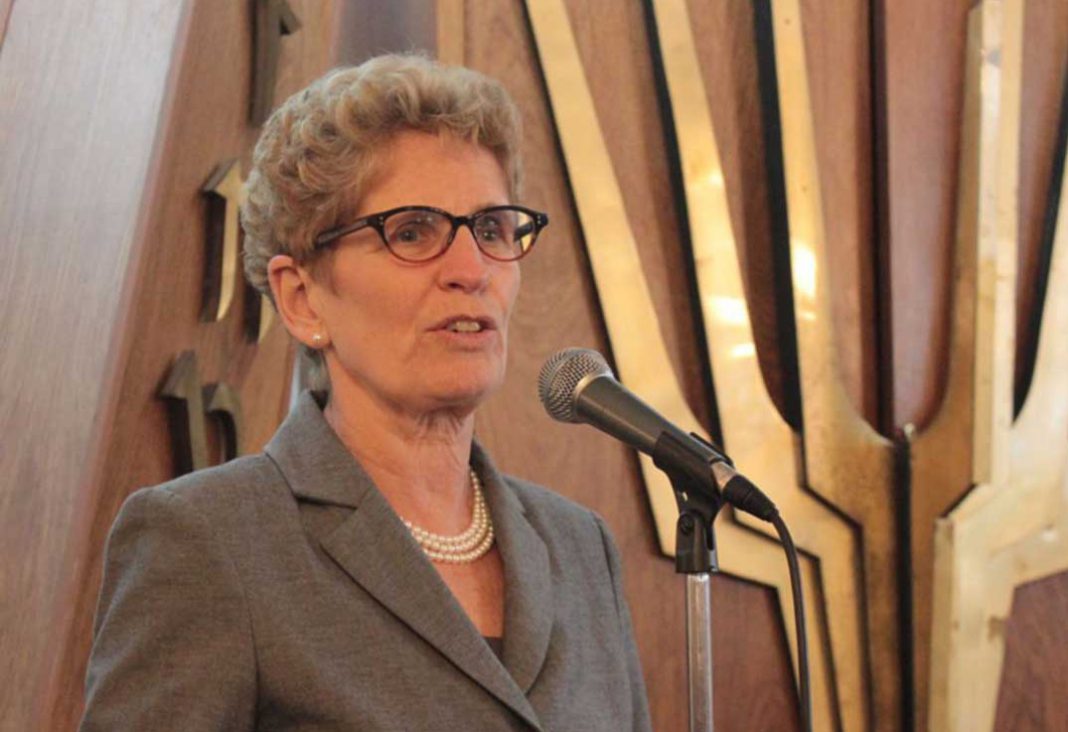Ontario chooses Thunder Bay, Lindsay and Hamilton
HAMILTON—Ontario Premier Kathleen Wynne announced her government’s plan to provide 4,000 residents of Hamilton, Thunder Bay and Lindsay with a guaranteed basic income as part of a pilot study to determine if that approach will assist lower income families improve their job prospects and quality of life.
Under the plan, the province’s working poor and homeless residents would receive a basic income that would pay for their basic needs, food and shelter.
Under the pilot project, recipients will be randomly chosen and will begin receiving the funds as soon as this summer. The basic income plan would provide up to $16,989 per year for a single person and $24,027 would be provided to a couple.
“One income used to be enough for most families,” said the premier during her announcement of the three-year pilot project. “Now with even two people working, it is tough to feel as though you are getting ahead and it is tough to feel confident that your job will still be yours or even around in 10 years, in five years or even less.”
“It’s a novel idea and a really interesting pilot,” said District Services Board CAO Fern Dominelli. “It will be very interesting to see what the results are, if they are really going to save the amount of money in other areas that they think they might. I think it is a worthwhile experiment.”
The announcement did not include details on how the three communities were selected for inclusion in the pilot, but Thunder Bay has been heavily impacted by a loss of forestry jobs (with plenty of angst on the horizon with the ongoing softwood lumber dispute) and Hamilton is facing much the same with the steel industry. Other communities, on the other hand, have been experiencing strong job growth as Ontario’s economy rebounds thanks to technology sectors.
“Technological progress and automation are creating new industries,” said Premier Wynne. “But they are also creating new pressures and they are putting existing jobs at risk.”
The project cost will come in at $150 million over the course of three years—tagged at $50 million a year.
Under the pilot plan, roughly 1,000 recipients will be chosen from Thunder Bay, while another 1,000 will be selected from Hamilton, Brantford and Brant County. Another 2,000 will be selected from the Lindsay area.
While the general concept of a basic guaranteed income is universal, the pilot will work on a graduated system, with about half of job earnings being deducted from the amount allocated. So a basic income recipient earning $10,000 in employment income would receive about $11,989 from the pilot program—that would be based on the maximum $16,989 less half the $10,000. That would bump the recipient up to $21,989 a year in income.
While this is a pilot program, studies from other jurisdictions and earlier pilot programs have indicated that there are improvements in people’s lives.
“People get a chance to go back to school,” pointed out Housing Minister Chris Ballard during the announcement. “They don’t have to work low-paying dead-end jobs. They get a chance to finish college or go on to university.”
Also as part of the project, people on Ontario Works or the Ontario Disability Support Program will not have to give up their benefit supports such as dental and drug plans.
Participants currently receiving child benefits, such as the Canada Child Benefit (CCB) and the Ontario Child Benefit (OCB), will also continue to be eligible to receive them during the pilot, but participants on Employment Insurance (EI) or on the Canada Pension Plan (CPP) will have their monthly basic income payment reduced dollar for dollar under the pilot.
A separate program targeting First Nations on reserve will be coming later this year, but First Nations people living in the pilot areas are eligible to participate.
The province will be engaging researchers to determine what the impact of the basic income is on people’s lives, and in the case of Lyndsay, the impact across the entire community will be assessed.
The results of the program are to be reported back in 2020.



